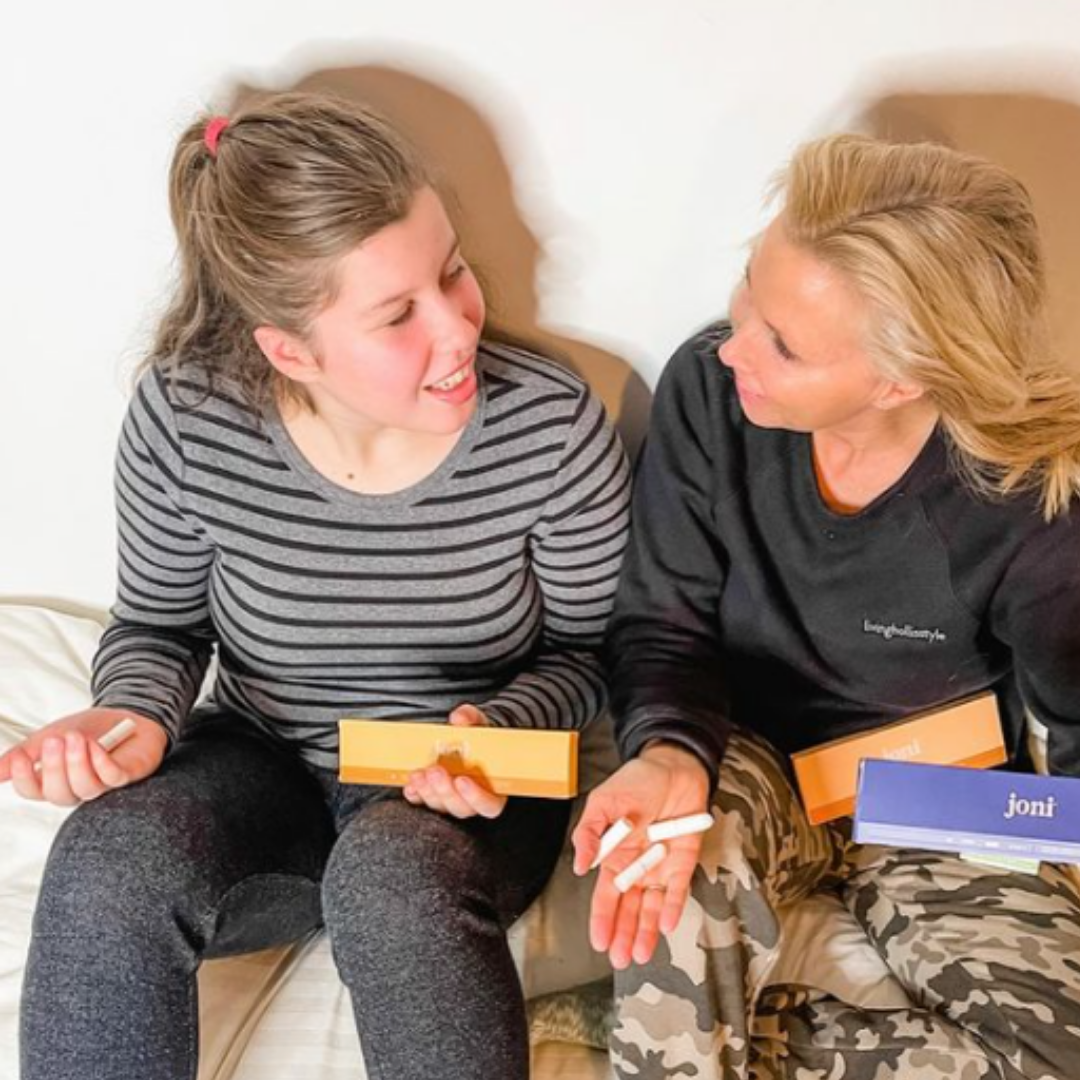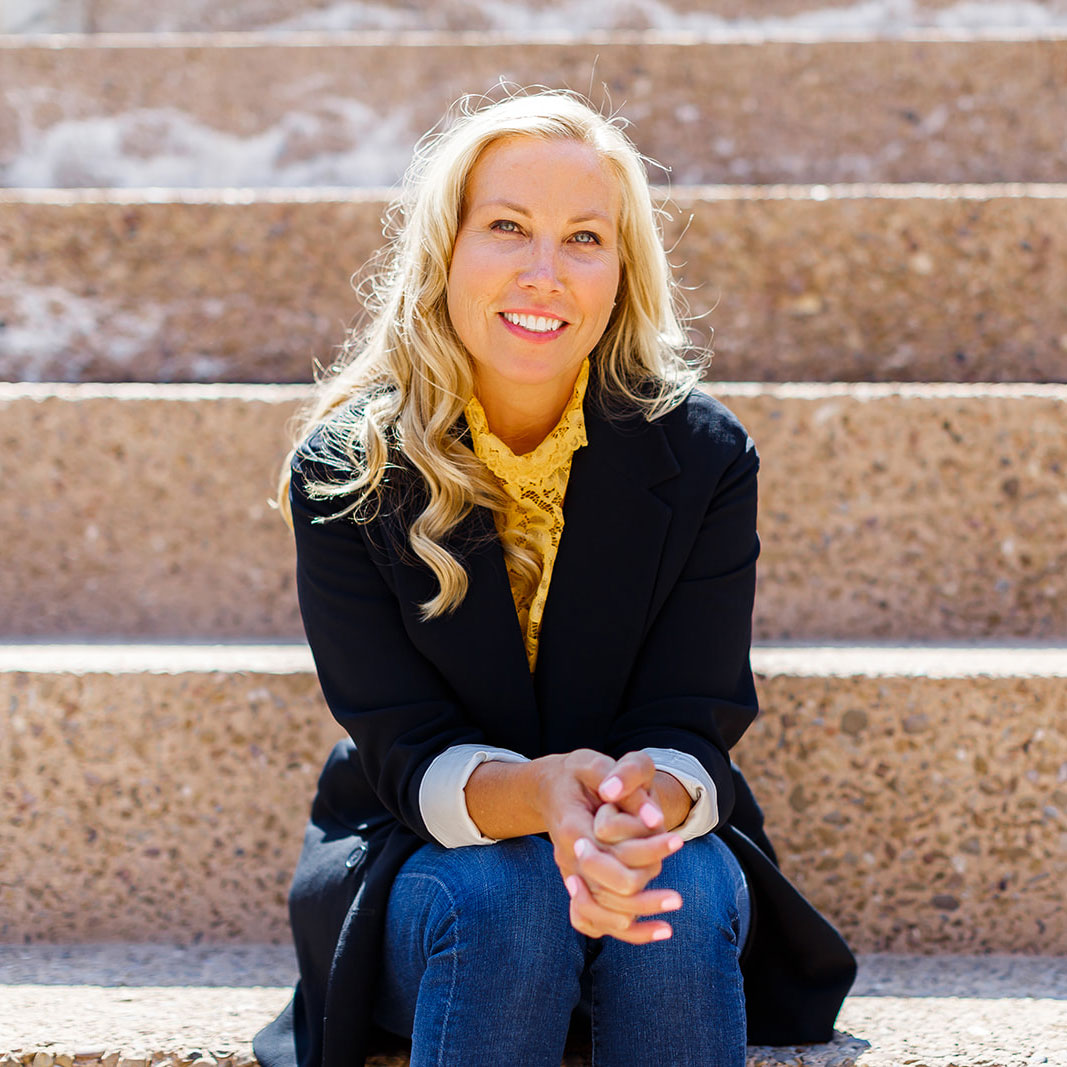
The reality of period equity is that there are many barriers to receiving equal opportunity period care, and one of them is neurodivergence. My daughter Victoria has non-speaking autism. She will communicate simple phrases like, “I want strawberries.” But mostly, her communication is non-verbal, and I understand her very well through body language and facial expressions.
Victoria is dependent, but she’s patient and happy! She teaches me every day what is truly important in life. Like any other person, she wants to be safe and loved.
Period care for autism
Having non-verbal autism, Victoria can’t tell me when she feels terrible or starts her period. It can be challenging and scary for all teens to experience their period in a way that isn’t empowering or normalized. I’ve always been very open with her about my period and have walked Victoria through my own. Being consistent is essential, with a pad that’s comfortable and works like Joni.
Better period care with Joni
Joni aims to make sustainable and affordable pads for all menstruators, regardless of gender, location and class. Joni pads are made of bamboo, cornstarch, biodegradable paper and plastic, and are about 92 percent biodegradable after 12 months.
Like many people with autism, Victoria has sensory sensitivities and OCD. The pad must be the right length, and the sides have to stick down for her. It has to feel just right, or it simply won’t work – she has to feel comfortable.
Pads and underwear give Victoria period care independence, something many of us take for granted. Period cups are challenging to master and too personal and invasive, especially when support workers are involved. For me, autism has environmental factors as well as a genetic disposition, so I want to know more than anything that she’s using safe and clean products, which is why I love Joni!
Why period equity matters
Equity acknowledges different people need different levels of support. Achieving period equity all begins by acknowledging the different barriers that are in the way for various people. When it comes to autism and periods, we need to look at the barriers and get the complete picture toward greater understanding. It begins by acknowledging diversity, including neurodiversity so that no one is left behind!
We all have our challenges, and when we share those challenges, that helps everybody. Some people judge autism and say how awful it must be. It is challenging, but it comes with a lot of learning. Victoria teaches me, again and again, the different values in life. Because of her, I’m more patient and less judgemental. I’m less concerned with stuff and more concerned about our health—health is everything.
Read my full conversation with Joni here: https://getjoni.com/a/blog/autism-and-periods-periodequity



